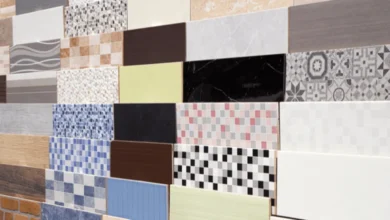11 Methods to Warm a Cold House

As winter approaches and energy costs are expected to continue to climb, many UK homeowners will want to keep their homes as warm as possible while minimising their energy expenses. Play Haus Design help for you.
There are several potential causes for your home’s chilliness. Your boiler and/or radiators may be outdated and inefficient or underpowered, and your windows and walls may be inadequately insulated. Your lifestyle choices, such as keeping windows open or forgetting to maintain the boiler annually, may be aggravating the situation.
Locate qualified heating experts in your region.
Top 11 Methods to Warm a Cold House
1. Attempt to draft-proof your house.
There are likely several breaches and cracks throughout your house that are allowing heat to escape, including those in door and window seals, keyholes, pet entrances, and mail slots. Attempt to tape over as many of the holes as possible. If you spend most of your time in one part of the home, turn down or switch off the radiators in the other rooms and instal a draught excluder at the bottom of the door to retain the heat where it is needed. Follow this link https://playhausdesigns.com/product-category/inground-trampolines/ to learn more.
2. Insulate heating system pipes
Hot water is distributed throughout the house through metal pipes, which will lose heat. Add insulation or lagging to the pipes to maintain the temperature of the water travelling from the boiler to the radiators.
3. Flush the radiators
If your radiators are not heating as efficiently as they once did or if you feel chilly spots while touching them, you may need to bleed the radiators. This merely indicates that air has been caught in the radiators, preventing them from being filled with hot water. By turning the bleed key on the radiator, this air may be released.
4. Have your boiler inspected
To keep the boiler operating properly, efficiently, and safely (and to maintain the manufacturer’s guarantee), it should be maintained annually by a competent heating expert. The service also provides a chance for professionals to address minor faults prior to an expensive breakdown.
Visit Boiler Guide to get a free, no-obligation boiler service estimate from a Gas Safe-certified technician in your region.
5. Install drapes for night-time privacy
A easy approach to prevent heat loss via windows and keep cold air out is to hang heavy drapes over the windows. When the sun is out, ensure that the drapes are open to allow the sun’s natural heat to enter.
6. Place a card coated with foil behind the radiators.
Radiators produce heat from both the front and rear, resulting in a significant amount of heat being absorbed by the wall rather than the room. You may avoid this by putting a big card covered in tin foil between the radiator and the wall to reflect heat back into the room.
7. Remove debris from near radiators
When radiators are positioned behind furniture or mounds of debris, the heat radiated by the radiator is absorbed by the things in front of it instead of heating the room. Clear the area in front of your radiators and consider installing a shelf above it to redirect heat that is rising in the room.
8. Place carpets on wooden flooring
If you have hardwood flooring, there might be microscopic spaces between each plank that allow heat to escape. Consider using a rug to decrease heat loss through the flooring.
9. Improve thermal insulation
According to research, 35% of heat loss happens via walls, doors, and windows, 25% through the roof, and 10% through the floor. By increasing or enhancing the insulation in your attic, cavity walls, and floors, you will be able to retain more heat in your house.
10 Install double glazing
Additionally, replacing single-glazed windows with double- or triple-glazed windows helps minimise heat loss. Unfortunately, replacing windows may be pricey so you might want to try sealing gaps in the window frames or putting thermal window film to the glass to limit heat loss until you can afford to replace the windows.
11 Replace your heating system
If your boiler and present heating system are old, damaged, or inefficient in general, you will waste money fighting a lost battle to keep your home warm, even if the aforementioned recommendations assist. If your boiler is older than eight years, a contemporary replacement boiler can heat your house more efficiently and typically at a lower operating cost. According to the Energy Saving Trust, replacing an outdated G-rated boiler with a brand-new one may cut annual energy expenses by up to £XXX.
A new boiler should make your house warmer, cut your energy costs, lessen your carbon footprint and will feature a manufacturer’s guarantee to offer you piece of mind against problems.
If you believe it may be time to upgrade your heating system with a new boiler, visit Boiler Guide to get free estimates from up to three heating specialists in your region.




